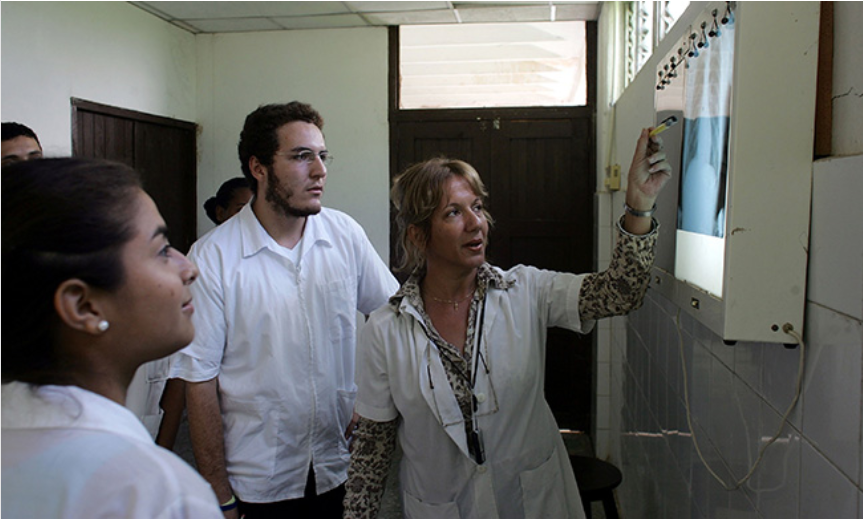We were indoctrinated to equate any mention of Cuba with the word communist and evil. If we could ever get over that moniker, and instead realize we can learn from any system good or perceived bad.
Cuba has a few things they could teach us. Surviving as a country even as the United States is trying to overthrow its government for north of 50 years speaks of a semblance of a working strategy.
Sarah van Gelder wrote an article titled “What Cuba Can Teach Us About Health Care” that everyone debating our health care debacle should read.
The beginning of her article was shocking.
It was a rare moment in the health care debate. A Trump supporter, Drea Holbert of Kentucky, was explaining her opposition to Republican health care bills to an NPR reporter when she said this: “Hopefully, they can take a look at what Canada is doing, and even Cuba.”
Yes, a Trump supporter suggesting that politicians review the Cuban health care system. She continues,
I went to Cuba in late 2006, where I visited clinics, hospitals, and advanced research institutions. In spite of being a poorer country than the United States, Cuba has a lower infant and child mortality rate and comparable life expectancy. Everyone can see a doctor or, if needed, go to the hospital.
But Cuba’s system doesn’t end with universal access for its citizens. Cuban doctors offer health care around the world. In fact, a group of them told me they were equipped and ready to come to New Orleans following Hurricane Katrina but couldn’t because the U.S. government declined permission. Cuban doctors did treat victims of earthquakes in Pakistan and Guatemala, but as they prepared to return home, they realized that they would be leaving locals behind with little access to medical care.
So Cuba began training students from Latin America, Africa, and other medically underserved regions to be doctors. The only condition: When they graduated, they agree to return to treat patients in their own communities.
Gelder makes the pointed out that other than having a very healthy population (more so than the U.S.), Cuba enhanced its security by training and exporting doctors.
Cuba’s spending on medical services and training, then, is an investment in its national security. By winning the friendship of countries like Pakistan and Guatemala, they increase their security without ships, airplanes, or bombs. They invest in training people to heal, not to kill, all over the world.
A fully socialized system like Cuba’s may not be in the cards for the United States. Still, Drea Holbert has a point. We have the resources to make sure everyone in our country has health care if we invest our vast wealth wisely.
If we could stop worrying about whether the concept of single-payer Medicare-for-All is socialism and started acknowledging that most countries with these systems outpace us in longevity, health, lack of medical bankruptcy and much more, we would do much better.

